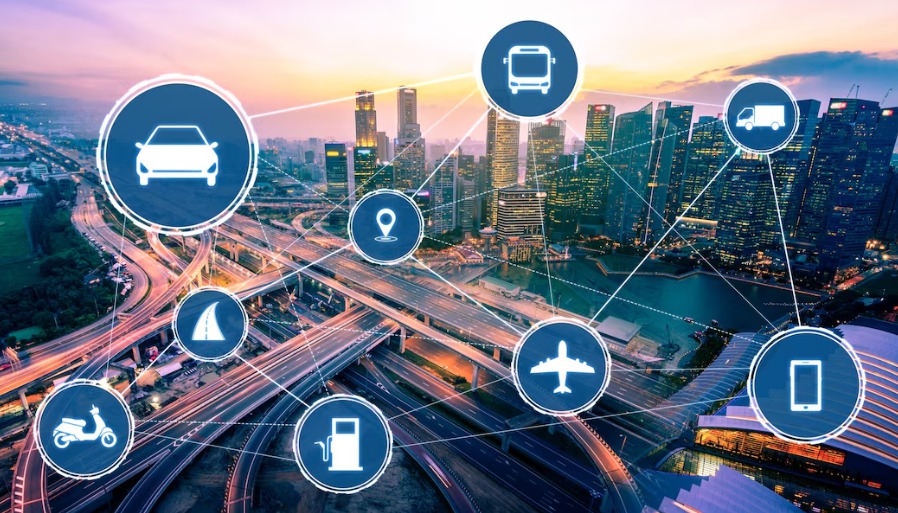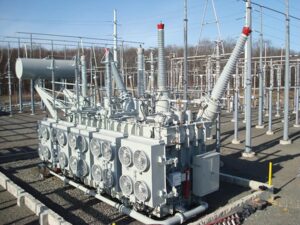
Transportation management systems (TMS) have evolved significantly over the years, becoming essential tools for businesses to optimize logistics operations, streamline transportation processes, and enhance overall supply chain efficiency. In today’s dynamic and interconnected marketplace, modern TMS solutions offer a comprehensive suite of features and functionalities designed to address complex logistics challenges and drive operational excellence. In this blog, we will explore the key features and functions of modern transportation management system, their benefits, and their impact on businesses across various industries.
Understanding Transportation Management Systems (TMS)
A transportation management system is a software solution that facilitates the planning, execution, and optimization of transportation operations within a supply chain. TMS platforms integrate various functionalities, such as route planning, freight optimization, carrier management, and shipment tracking, to ensure efficient movement of goods from origin to destination. These systems leverage advanced technologies, real-time data analytics, and automation to streamline processes, reduce costs, and improve delivery performance.
Key Features of Modern Transportation Management Systems
Modern TMS solutions encompass a wide range of features that cater to the diverse needs of logistics and supply chain management. Here are the key features that define modern transportation management systems:
- Route Planning and Optimization:
- Functionality: Route planning tools optimize transportation routes based on factors such as distance, traffic conditions, delivery windows, and vehicle capacity.
- Benefits: Reduces fuel consumption, minimizes transit times, and improves on-time delivery rates. Enables efficient allocation of resources and enhances overall fleet productivity.
- Freight Consolidation and Optimization:
- Functionality: Combines multiple shipments into consolidated loads to maximize trailer utilization and reduce transportation costs.
- Benefits: Lowers shipping expenses, reduces carbon emissions, and improves supply chain sustainability. Enhances load visibility and enables cost-effective transportation strategies.
- Carrier Management and Selection:
- Functionality: Evaluates carrier performance, rates, and service levels to select the most suitable carriers for specific shipments.
- Benefits: Enhances transparency in carrier negotiations, improves service reliability, and ensures compliance with contractual agreements. Facilitates seamless collaboration with preferred carriers and fosters long-term partnerships.
- Shipment Visibility and Tracking:
- Functionality: Provides real-time visibility into shipment status, location, and estimated delivery times.
- Benefits: Enables proactive exception management, enhances customer service, and improves supply chain responsiveness. Empowers stakeholders with accurate, up-to-date information for informed decision-making.
- Warehouse Integration and Management:
- Functionality: Integrates with warehouse management systems (WMS) to streamline order fulfillment, inventory management, and dock scheduling.
- Benefits: Optimizes warehouse operations, reduces order processing times, and minimizes stockouts. Improves inventory accuracy and enables seamless coordination between transportation and warehousing activities.
- Load Tendering and Execution:
- Functionality: Automates the tendering process for freight shipments, including load booking, scheduling, and confirmation.
- Benefits: Enhances operational efficiency, reduces administrative overhead, and accelerates order processing. Facilitates real-time communication between shippers, carriers, and consignees for smooth execution of transportation tasks.
- Performance Analytics and Reporting:
- Functionality: Generates comprehensive reports and analytics on transportation KPIs, such as freight costs, carrier performance, delivery accuracy, and transit times.
- Benefits: Provides actionable insights for continuous improvement, strategic decision-making, and performance benchmarking. Identifies cost-saving opportunities, operational bottlenecks, and areas for process optimization.
- Compliance and Documentation Management:
- Functionality: Ensures compliance with regulatory requirements, industry standards, and customer-specific protocols for transportation operations.
- Benefits: Minimizes risks of fines and penalties, enhances operational transparency, and supports audit readiness. Manages documentation, such as bills of lading, customs forms, and insurance certificates, efficiently and accurately.
- Cost Management and Financial Visibility:
- Functionality: Tracks transportation costs, budget allocations, and financial expenditures associated with logistics operations.
- Benefits: Enables cost control, budget forecasting, and variance analysis. Optimizes spending on freight, fuel, and transportation services through data-driven insights and financial visibility.
- Integration with Supply Chain Ecosystem:
- Functionality: Integrates seamlessly with ERP systems, supplier portals, e-commerce platforms, and other supply chain management applications.
- Benefits: Enhances data synchronization, facilitates end-to-end visibility, and supports collaborative supply chain initiatives. Improves efficiency in order processing, inventory management, and customer fulfillment processes.
Benefits of Modern Transportation Management Systems
Implementing a modern transportation management system offers numerous benefits to businesses across various industries. Here are the key advantages:
- Improved Efficiency: Streamlines transportation processes, reduces manual tasks, and enhances workflow automation.
- Cost Savings: Optimizes routing, consolidates shipments, and negotiates better rates with carriers to lower transportation costs.
- Enhanced Visibility: Provides real-time visibility into shipment status, inventory levels, and transportation performance metrics.
- Customer Satisfaction: Improves on-time delivery rates, reduces transit times, and enhances service reliability for better customer experiences.
- Strategic Decision-Making: Delivers actionable insights through analytics and reporting tools for informed decision-making and continuous improvement.
- Regulatory Compliance: Ensures adherence to transportation regulations, safety standards, and industry certifications to mitigate risks.
Case Studies: Real-World Applications of Modern TMS Solutions
To illustrate the impact of modern transportation management systems, consider the following case studies:
Case Study 1: Global Manufacturing Company A global manufacturing company implemented a modern TMS to optimize its inbound and outbound logistics operations across multiple manufacturing facilities and distribution centers. By leveraging route optimization, freight consolidation, and real-time tracking capabilities, the company achieved a 15% reduction in transportation costs and a 20% improvement in delivery efficiency. The TMS integration with ERP systems and WMS enabled seamless order fulfillment and inventory management, leading to enhanced supply chain visibility and operational agility.
Case Study 2: Third-Party Logistics Provider (3PL) A 3PL provider adopted a cloud-based TMS to enhance its transportation management capabilities and deliver value-added services to clients. The TMS facilitated dynamic load planning, carrier selection based on performance metrics, and automated freight audit processes. As a result, the 3PL improved on-time delivery performance by 25%, reduced transportation administrative costs by 30%, and enhanced customer satisfaction through real-time shipment visibility and proactive communication.
Future Trends in Transportation Management Systems
Looking ahead, the future of transportation management systems will be shaped by technological advancements and industry trends. Key future trends include:
- Artificial Intelligence (AI) and Machine Learning: AI-driven algorithms will optimize route planning, predict demand patterns, and automate decision-making processes in real time.
- Internet of Things (IoT) Integration: IoT devices will enable sensor-based tracking of shipments, monitor vehicle performance, and enhance supply chain visibility through data-driven insights.
- Blockchain Technology: Blockchain will improve transparency, traceability, and security in transportation transactions, such as freight payments and compliance documentation.
- Autonomous Vehicles: Adoption of autonomous trucks and drones for last-mile delivery and transportation tasks will revolutionize logistics operations and reduce dependency on human drivers.
- Sustainability Initiatives: Emphasis on eco-friendly transportation practices, such as electric vehicles (EVs) and alternative fuels, to reduce carbon emissions and promote environmental sustainability.
Conclusion
In conclusion, modern transportation management systems are indispensable tools for businesses seeking to optimize logistics operations, reduce costs, and improve supply chain efficiency. By leveraging advanced features such as route optimization, freight consolidation, real-time tracking, and analytics, organizations can achieve operational excellence, enhance customer satisfaction, and gain a competitive edge in the global marketplace.
As technology continues to evolve and industry dynamics shift, the role of transportation management systems will become increasingly pivotal in shaping the future of logistics and supply chain management. By embracing innovation, adopting best practices, and leveraging strategic partnerships, businesses can navigate complexities, capitalize on opportunities, and drive sustainable growth in the digital age.



























These are truly fantastic ideas in regarding blogging.
You have touched some fastidious factors here. Any way keep up
wrinting.